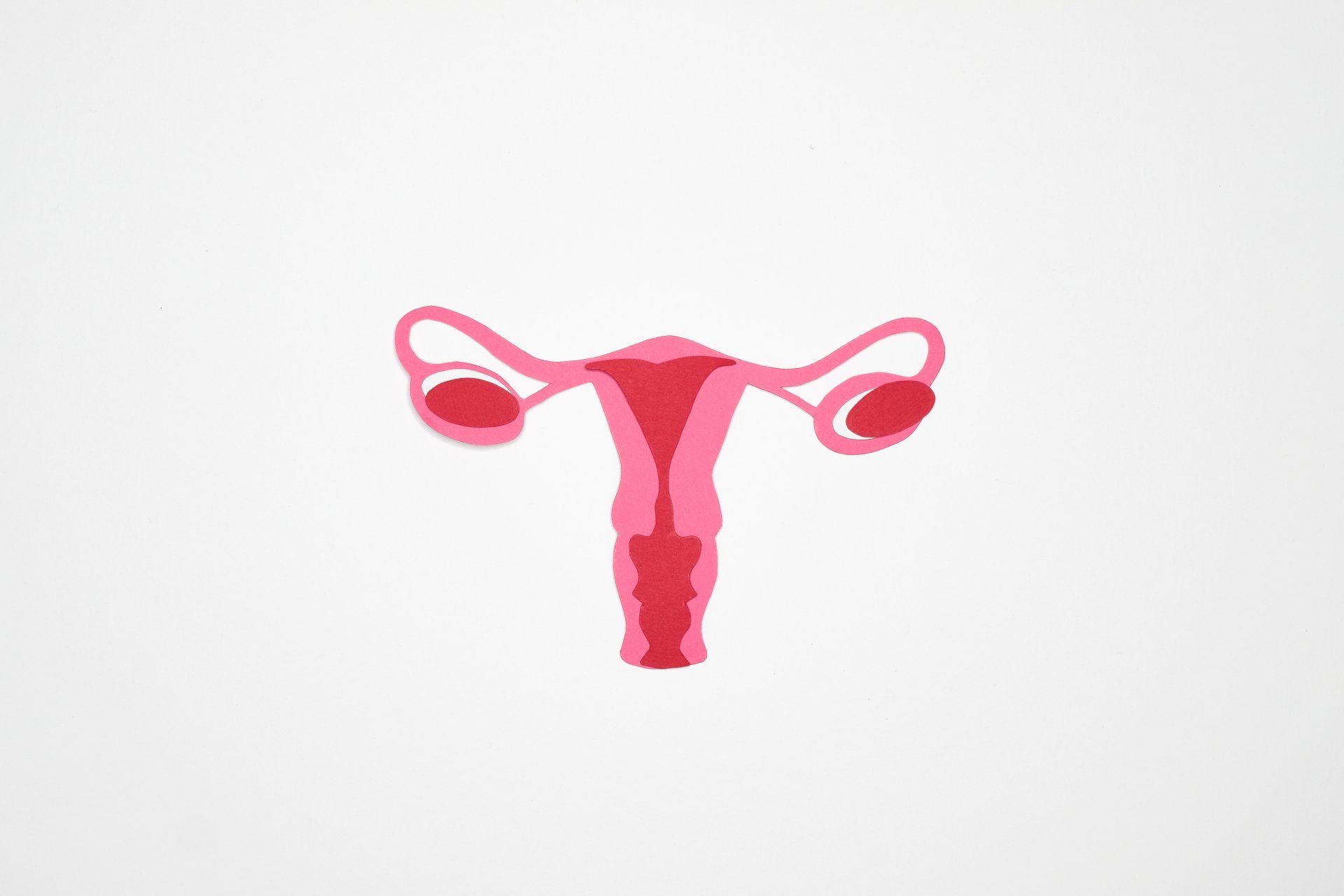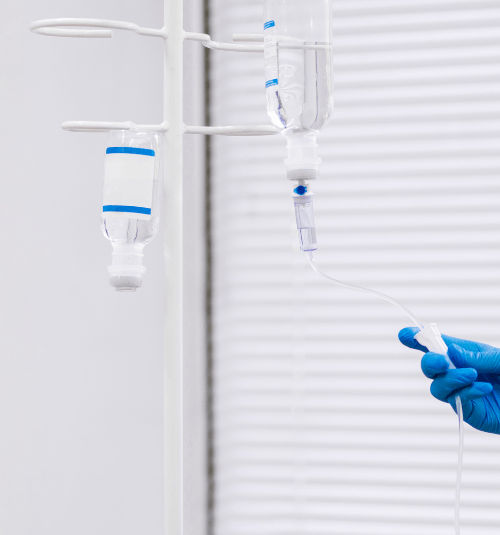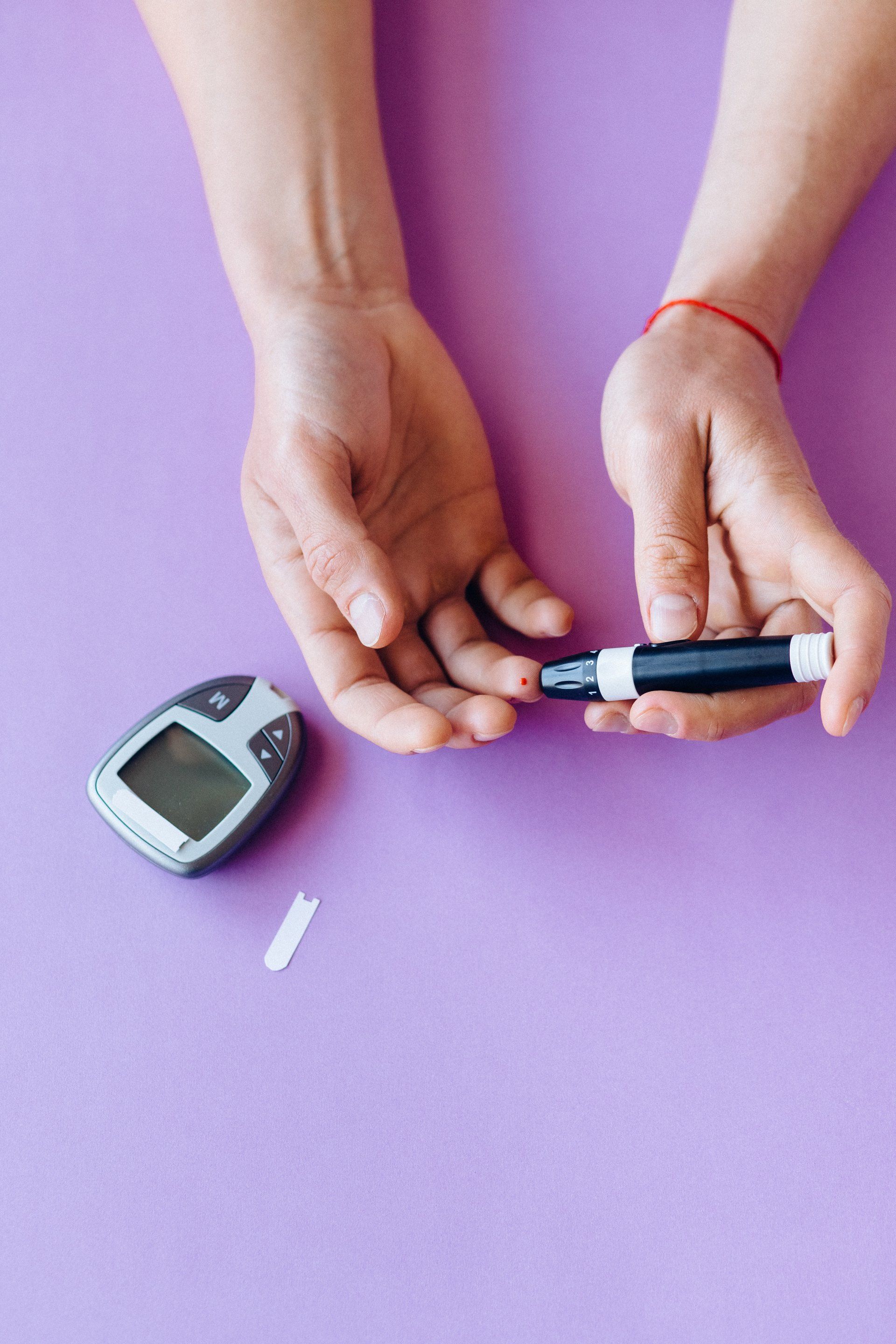Health Blog

October 22, 2021
We all know that massage therapy helps with aches and pains in the body, but have you considered the psychological benefits? Personally, I experienced burnout around 6 years ago and was diagnosed with adrenal fatigue. Massage therapy (and a regular yoga practice) helped me regain my overall sense of wellness and brought me back to life. There were days that I felt so exhausted that it made completing simple tasks extremely overwhelming. Then, there were days that I felt so stressed and anxious that I had trouble relaxing and sleeping, to the point where I developed panic attacks in the middle of the night. I didn’t know about the psychological effects of massage at the time, but I always felt like it gave me energy when I was exhausted and helped me feel calm and sleep better when I was stressed. It is, still to this day, one of the greatest tools I use in stress management and in maintaining my personal sense of wellness. Thanks to the advancement in research in the areas of massage therapy and the nervous system, researchers have found that massage increases relaxation, reduces stress and decreases anxiety and depression. Some clinical studies have also found that massage therapy has positive effects on neurotransmitters, such as dopamine, endorphins and serotonin and on the parasympathetic nervous system (PNS). The PNS is responsible for reduction of the heart rate; constriction of pupils; secretion of most glands, such as the salivary glands and the gastric glands in the stomach; and facilitation of the digestive process. The PNS creates the optimal environment in the body for healing and deep rest. The state is also known as the “rest and digest” state. Have you ever noticed your stomach growling embarrassingly half-way in a massage session? It’s a good thing because you have likely entered the “rest and digest” state. Your massage therapist knows this! There have also been interesting studies on how massage affects job-related stress. After just a 15 minute on-the-job massage, results yielded a reduction in the saliva level of cortisol (the stress hormone). The subjects reported feeling more alert, which was supported by an EEG study that showed brain waves consistent with increased alertness. Following the massage, the subjects were also able to solve computerized problems quicker with 50% less errors (Turnbull,1994/5). Since the mind and body are interconnected and function as a whole, mental stress can lead to physical stress and vice versa. Some common manifestations of stress in the body are muscle stiffness, trigger points, jaw clenching, tight upper shoulders, shallow breathing and exhaustion. Massage therapy treats not only the body but the mind as well. There are two main goals in treating stress – decrease the nervous system from firing and treat muscle hypertonicity. You may have heard of the term Swedish massage; which is a common term for a general relaxation massage. The modern era of massage therapy started in the early nineteenth century. One of the most prominent practitioners at the time was Pehr Henrik Ling, a Swedish Psychologist and gymnast, who developed his own massage system in treating patients. The common techniques are gliding, kneading, frictioning, compression, percussion and vibration. The sequence is usually very fluid and rhythmical, and can be done with light or firm pressure. His system was being adopted widely in the Western world and is known today as Swedish Massage, named after this nationality. If you ask for a general relaxation massage, your massage therapist will likely perform a Swedish massage using a combination of those techniques. Heat may also be used to facilitate further relaxation. To summarize, massage therapy has the following effects: ● Increase serotonin ● Increase dopamine ● Increase relaxation ● Improve sleep ● Decrease stress, depression and anxiety ● Improve cognitive functioning The bonus part of massage therapy is that you don’t really have to do anything! You literally just lay there and will always feel better afterwards. Alycia Ho, RMT, B.Mgt Works Cited Rattray, Fiona, and Linda Ludwig. Clinical Massage Therapy. Talus, 2000. Salvo, Susan. Massage Therapy Principles and Practice. Elsevier, 2016. Turnbull, Wendy. Massage and Medicine Emerging. vol. 8, no. Ontario Massage Therapist Association Newsletter, 1994/5.

October 22, 2021
Polycystic ovarian syndrome (PCOS) is one of the most common hormone disorders affecting women. It is suspected that more than 1/10 women have PCOS yet many are undiagnosed. Some of the more common symptoms of PCOS are irregular or absent periods, acne, hair loss, cystic ovaries, infertility, and difficulty losing weight. Although research has come a long way in terms of understanding the causes of PCOS, and more women are getting diagnosed, conventional medicine has little to offer in term of effective treatment. Women are often told that they need to lose weight to fix their PCOS, but weight loss is extremely difficult for women with PCOS due to no fault of their own. The typical formula of reducing food intake and increasing exercise rarely brings results. The drug, Metformin, is often prescribed but a recent study has shown that this medication did not help women with PCOS to lose weight after being on it for 3 months. Also, metformin is often poorly tolerated due to gastrointestinal side effects. The birth control pill can help with regulating the period but it doesn’t address any of the underlying imbalances that cause PCOS. It’s also obviously not a good solution for women who are trying to conceive. Dr. Rebecca Tocher-Richmond, ND has been helping women with hormonal issues including PCOS for over 20 years. She has developed a specific interest in PCOS because she discovered early on in her career that there is so much that Naturopathic Medicine can do to help these women. Dr. Tocher-Richmond has created a 6 Step PCOS Program as a framework for treating PCOS. Although there are some aspects of treatment that apply to all women with PCOS, every woman is unique so each patients plan will look a little different. The naturopathic approach to treating PCOS is not a quick fix program. Although we often see some immediate improvements, other symptoms of PCOS take time to resolve. We work together to create an eating plan and lifestyle changes that are sustainable over the long term. Supplement recommendations are focused on a woman’s specific hormonal picture and needs. We do blood tests at various stages in the process to identify imbalances and to monitor results. If you or someone you know is struggling because of PCOS, please give us a call at the clinic or book an appointment online. We would love to help you on your path to wellness. 6 Step PCOS Program Overview Step One -health history to discuss your PCOS symptoms and all aspects of your health -in-office testing including live blood cell analysis and urine test -initial supplement recommendations for PCOS and other health concerns -introductory dietary plan presented as a ‘foods to eat and foods to avoid’ list to keep it simple -comprehensive blood work panel through Dynalife Lab Step Two -review of blood work findings. We will discuss what your numbers mean, how they relate to your symptoms, and how to resolve any imbalances -more specific nutritional recommendations based on blood work results -recipes will be provided including detailed weekly meal plans if that works for you -nutritional supplements will be added or removed from your protocol based on your unique needs Step Three -discussion of progress on initial diet and supplement program -address specific challenges that may be inhibiting progress such as cravings, stress and sleep -nutritional supplements and dietary recommendations will be adjusted and tweaked based on your symptoms and results so far -exercise recommendations based on what you enjoy and what’s best for PCOS Step Four -review of progress so far and address any challenges -refine the nutrition and supplement recommendations -how is the exercise going? -discuss the toxins which are all around us and what you need to know for PCOS long term care -Re-test the blood work Step Five -Review the blood work results -adjust the dietary and supplement recommendations based on blood work results -repeat the in-office testing-urine tests and live blood cell analysis Step Six Tweak the diet and adjust the supplements based on progress Set up a maintenance plan for long-term success PCOS is a lifetime condition but with a solid program of nutrition and supplementation the symptoms of PCOS can be effectively managed. Changes in the maintenance program are required based on changes in a patient’s life such as stress levels, pregnancy, effects of age and the development of other acute or chronic health conditions. The maintenance program will be adjusted accordingly. Annual PCOS specific blood work is recommended.

October 22, 2021
By Dr.D.Vojtisek, B.Sc., N.D. Over the last decade-plus of practicing Naturopathic Medicine one of my favourite treatment modalities has been the use of intramuscular vitamin injections. The advantage of this delivery system is mainly the nearly 100% absorption, which is greatly superior to oral supplementation, especially in situations where there is impairment of liver and/or digestive function at any level. The most common vitamin in intramuscular injection formulations is Vitamin B12. As Naturopathic Doctors we tend to use its hydroxycobalamin or methylcobalamin forms as opposed to the synthetic and largely inactive cyanocobalamin form. A variety of other vitamins, minerals and other nutraceuticals can be added depending on the treatment goal. IM injections are limited by the volume of fluid that can be injected at any given time without causing discomfort. Usually this volume tops out at about 3.5-4 mL. The injection is given directly into a muscle, most commonly the deltoid in the shoulder or the glutes/hip area. The following is a list of just some of the medical conditions for which Vitamin B12 injections can be a viable treatment option: Atherosclerosis/Ischemic Heart Disease Tinnitus Herpes Zoster (shingles) Constipation Urticaria Diarrhea Vitiligo Fecal incontinence Hearing loss Gatroparesis Olfactory dysfunction (poor sense of smell) Back pain Taste disorders Bursitis Muscle cramps Osteoporosis Migraine Peripheral neuropathy Sciatica Trigeminal neuralgia Anxiety Dementia/cognitive decline Depression Postpartum depression Alcohol addiction Anesthesia side effects Asthma Chronic fatigue syndrome Cirrhosis Diabetes Fatigue Growth retardation Hepatitis Hyperthyroidism Infertility I have observed great effectiveness of IM injections (all containing Vitamin B12) in treating all of the above conditions and many more. Generally speaking,most patients will report increased energy levels, mental clarity, motivation, improved sleep and greater mental focus following IM injections of Vitamin B12. If you are suffering from any of the listed conditions or wish to find out whether IM injections may be an effective treatment option for you please book a consultation. Sources: Gaby, Alan R., Nutritional Medicine, Concord, NH, Fritz Perlberg Publishing, 2011.

October 22, 2021
By Dr.D.Vojtisek, B.Sc., N.D. Non Alcoholic Fatty Liver Disease; NAFLD, is a condition that is becoming ever more common in our patient population, especially those with poor blood sugar control, metabolic syndrome (a combination of high blood pressure, high LDL cholesterol and triglycerides, high blood sugar and excess fat around the midsection) and those who are overweight, pre-diabetic or diabetic While NAFLD is considered benign, the danger is that it tends to progress to a more serious liver condition, Non Alcoholic Steatohepatitis or NASH. NASH leads to inflammation of the liver resulting in scarring, fibrosis and cirrhosis (permanent damage and loss of function). While naturopathic treatment protocols for NAFLD must include lifestyle and dietary changes to ease the toxic burden on the liver, there are excellent nutraceutical and herbal options as well. The target of these treatments is to improve insulin sensitivity, lessen inflammation, protect the liver from further damage and ultimately to help to regenerate normal liver cells and restore normal function, or at the very least, to slow and arrest the disease process. Many recent studies have focused on the damaging effects on the liver of toxins absorbed into portal circulation as a result of dysbiosis (growth of harmful bacterial, yeast species in the gut) and SIBO (an overgrowth of bacteria in the small intestine). It appears these conditions can play a major role in the development of NASH and therefore their detection, diagnosis and treatment can be an important and effective part of a naturopathic NASH treatment protocol. I have found that testing for and treating both dysbiosis and SIBO improves a great many health conditions and have begun to use this approach with patients suffering from NASH as well. Sources: Klotter, Jule, Gut Microbiota and Nonalcoholic Fatty Liver Disease, Townsend Letter, June 2020, pp.32 BACKGROUND: A CONDITION WHEREBY THE LIVER LOSES ITS ABILITY TO PROPERLY PROCESS FATS, WHICH THEN BEGIN TO BE DEPOSITED IN THE LIVER ITSELF AND THROUGHOUT THE BODY LEADING TO WEIGHT GAIN, INFLAMMATION. POOR BLOOD SUGAR CONTROL/INSULIN RESISTANCE IS PART OF THE CLINICAL PICTURE

October 22, 2021
Dr. Rebecca Tocher-Richmond, ND Some people seem to be able to eat whatever they want and never gain a pound. We might say they naturally have a fast metabolism but there are steps you can take to make sure your metabolism is working up to its potential. These are some of our favourite ways to boost your metabolism: Stay Satiated Even if you’re trying to lose a few extra pounds, staying fairly full is key to your success in managing your metabolism and your weight. Eat slowly, chewing well, until you’re about 90% full, and then stop. This will allow you to determine if you really do need more sustenance or if you’re just eating out of habit. Even if you’re aiming to reduce your food intake, starving will only make your metabolism slower as it tries to store the limited energy it’s being provided – and that’s the opposite of our goal. Commit to Breakfast It’s not surprising that those who don’t eat breakfast actually tend to gain more weight over time. That’s because those who skip this meal tend to make up for it (and more) by overeating at lunch, snack times, and dinner. After a good night’s rest your body is primed to accept the fuel it needs to move through the day. In fact, it needs more fuel because it’s been hours with your metabolism in resting mode! Try a breakfast that’s high in protein, and has some complex carbohydrates and a bit of fat to jumpstart your metabolism and keep you satisfied until lunch time. Up That H20 Whether via glasses of water or herbal tea, giving your body quality fluids is essential to having a well-hydrated metabolism. Water helps keep nutrients flowing into your cells, carries toxins out of your body, and is key to a happy digestive system. It also keeps you feeling full, and helps your energy level. Add Tea or Coffee The antioxidants and small amounts of caffeine found in black, green, and white tea as well as coffee are beneficial to revving up your metabolism and keeping it chugging along healthily. One or two cups a day can provide the most beneficial amounts without going overboard. And, even better, adding herbal teas such as fennel, mint, or ginger tea after a meal can assist your digestion processes, helping meals to settle better and digest more easily – without added caffeine. Spice Is Extra Nice Studies show that adding spicy hot peppers or hot pepper sauces can help to increase your metabolism! Studies are showing that the thermogenic properties of peppers and capsaicin, a compound in chiles, can temporarily increase your body temperature, helping it to burn more calories in short bursts of time. So, try adding some extra spice to those soups or other foods, and see what benefit you might derive! Adding more flavour to your food also helps to prevent overeating. Include Intervals Any form of exercise can be bolstered with the addition of the short bursts of cardiovascular activity also known as ‘Interval Training’. Adding in 2-5 minute bursts of jumping jacks, skipping, or burpees are all great ways of building long lasting metabolism increases. If you’re a walker, try adding a few brisk hill repeats into your route. Turn Down Stress It’s been long understood that high levels of stress hormones like cortisol can result in a slowed metabolism and eventual weight gain. The opposite is also true: by turning down the stress in our lives we can help our brains, hormones, and bodies relax, a natural reboot for our metabolism. Stimulate Your Stomach If you consistently experience symptoms like heaviness after a meal, acid reflux, bloating, food allergies, undigested food in stool, flatulence, or even nausea after taking supplements you might be suffering from low stomach acid which, in turn, can result in lowered metabolism. Stomach acid, or HCL (hydrochloric acid) is a core requirement to digest effectively and one of the essential building blocks to a well-functioning metabolism. Our Naturopathic Doctors are very experienced in assessing and treating this digestive issue. Excel With Enzymes Sometimes there are particular foods that make us feel sluggish, heavy, bloated, or uncomfortable. In that case it might be time to consider a digestive enzyme to help break down food to make it more digestible and the nutrients within it more absorbable. Look for the ones that help with your food difficulties: protease for proteins, amylase for help with carbohydrates, lipase for help digesting fats, cellulase for breaking down fiber, and maltase to help convert complex sugars from grains into glucose. A broad spectrum digestive enzyme will cover all of your bases. Sleep Soundly The quality of your sleep doesn’t just affect your mood and energy level, it also has a profound effect on your metabolic state because deep REM sleep is the body’s time for rest and repair – and that includes how the body manages stress hormones, blood sugar levels, and inflammation – all of which play critical roles in our metabolism. We’re still learning much more about how important consistent sleep and rest are for our health, but what we do know for sure is that a sleep deprived body is slower and more lethargic which means weight management is harder. So if you choose just one of these tips to follow, make getting sleep your number one priority! Looking for personalized assistance in maintaining a healthy metabolism? We can help you navigate this and provide you with a fully customized plan for better health. To book your appointment call us at 780-459-5601 or visit us online at www.npath.com.

October 22, 2021
Dr. David Vojtisek, ND Since our last article on IV therapies offered at St.Albert Naturopathic Clinic we have had more inquiries as to what types of health challenges can benefit from such treatments. Dr. Vojtisek, for whom intravenous therapies are a special interest, as well as some of our other doctors, have prescribed various IV therapies with often excellent results for the following conditions: General tonification of energy and the healing response Alcohol and drug addiction Lyme disease Epstein-Barr Syndrome Viral illness (colds, flu, CMV, herpes, shingles) Rheumatoid arthritis Chronic degenerative arthritis High cholesterol Heart disease Heavy metal toxicity (chelation therapy.) Neurological disorders Gastritis, ulcers, IBS and stomach malabsorption issues Ulcerative colitis and Chrohn’s disease Anemias Adrenal fatigue as a result of chronic stress Post-traumatic or post-operative wounds that do not heal Nutrient deficiency And more… In order to assess whether you are a candidate for IV therapies please book a consultation at St. Albert Naturopathic Clinic. You may need to undergo specific blood tests before starting IVs, depending on your unique situation.

October 22, 2021
Dr. Rebecca Tocher-Richmond, ND Insulin is a hormone that controls blood sugar levels. A person can have normal blood sugar levels yet high insulin. I will often test insulin levels in my patients with PCOS (polycystic ovarian syndrome) or any of my patients that are having difficulty losing weight without obvious cause. A patient may be told that they have normal insulin based on standard lab values but it might still be too high to effectively manage weight. If I determine that a patient has high insulin there are some very effective nutritional and supplement measures to help. I often use Barberry in my practice for patients with high insulin and this review of research supports this use. In total, 7 studies, comprising 452 participants, were included in this systematic review. The meta-analysis revealed that barberry significantly reduces insulin levels. I will continue to use this herb with confidence to help with weight loss. Safari Z, Farrokhzad A, Ghavami A, Fadel A, Hadi A, Rafiee S, Mokari-Yamchi A, Askari G. The effect of barberry (Berberis vulgaris L.) on glycemic indices: A systematic review and meta-analysis of randomized controlled trials. Complementary Therapies in Medicine. June 2020.

October 22, 2021
Dr. Rebecca Tocher-Richmond, ND Allergy season is upon us and many of our patients are looking for alternatives to pharmacological therapies. This systematic review aims to synthesize the available evidence relating to the treatment of allergic rhinitis with a variety of natural health products. A total of 57 062 articles were derived from searching seven online databases and evidence from 48 RCTs and 10 observational studies were reviewed. Promising evidence for the following single supplements were found: apple polyphenols, tomato extract, spirulina, chlorophyll, honey, conjugated linoleic acid, MSM, isoquercitrin, vitamins C, D and E, as well as probiotics. Combination formulas may also be beneficial, particularly specific probiotic complexes, a mixture of vitamin D3, quercetin and Perilla frutescens, as well as the combination of vitamin D3 and L. reuteri. Clearly there are many options for the natural treatment and prevention of allergies. Pellow J, Nelte A, Temane A, Solomon, EM. Health supplements for allergic rhinitis: A mixed-methods systematic review. Complementary Therapies in Medicine. June 2020.

October 22, 2021
Dr. Rebecca Tocher-Richmond, ND Magnesium is involved in over 600 biochemical pathways in the body (1). As a result, it plays an important role in many common health conditions and symptoms. Symptoms of magnesium deficiency include muscle cramps and twitches, headaches, irritability, anxiety, fatigue, heart palpitations, high blood pressure, chocolate cravings, and much more. Some people don’t experience any obvious magnesium deficiency symptoms at all, yet magnesium still becomes a very helpful part of their naturopathic treatment plan. Headaches Magnesium has been shown to help all types of headaches. Since magnesium acts as a muscle relaxant it’s useful in the prevention of tension headaches (2). Other studies have used IV magnesium in the emergency room for the treatment of severe migraines. In one study, complete elimination of pain was observed in 80% of patients within 15 minutes of the infusion of magnesium (3). Menstrual Cramps Due to its role in relaxing muscles, it’s not surprising that magnesium is also helpful for the treatment of menstrual cramps (4). The research has shown that magnesium supplementation decreases the need for additional pain killers for cramps (5). It has also been shown to help with other symptoms associated with PMS and peri-menopause. High Blood Pressure Interest in the ability of magnesium to help with cardiovascular disease has been growing for years. High blood pressure or hypertension is a significant public health challenge because it is associated with cardiovascular disease and premature death. Low magnesium levels increase the risk of developing hypertension (6). Fortunately, research has shown that supplementing with magnesium can naturally bring blood pressure back into a healthy range (7,8). Anxiety Magnesium plays an important role in mood disorders such as anxiety. Neurotransmitters are the brain messengers that control mood, and magnesium is important for neurotransmitter production. In several studies, people who took magnesium supplements reported less anxiety (9). Since chronic stress depletes magnesium, many of our busy patients feel calmer and more productive when taking magnesium supplements. Magnesium may also help boost athletic performance, fight depression, decrease inflammation, resolve constipation, treat insomnia, and help with the treatment of diabetes. Magnesium is found in many common foods such as legumes, whole grains, nuts, seeds, leafy greens, fatty fish, avocados and bananas, but it is very difficult for many people to meet their needs through diet alone. Certain health conditions, lifestyle habits, and medications can disrupt your body’s ability to absorb magnesium and increase your magnesium needs even further. Blood tests for magnesium are readily available but aren’t very useful for evaluating magnesium status in the body overall. Magnesium is kept mostly in our bones and soft tissues. The amount of magnesium in our bloodstream is only about 1% of the total magnesium in our bodies. The recommended dose of magnesium is very individualized. Magnesium is also available in various forms such as magnesium citrate, magnesium bis-glycinate, liquid magnesium, magnesium lotion, or even magnesium injections. As always your naturopathic doctor is the best person to consult regarding your specific magnesium needs! References de Baaij JH, Hoenderop JG, Bindels RJ. Magnesium in man: implications for health and disease. Physiol Rev. 2015;95(1):1‐46. doi:10.1152/physrev.00012.2014 Woolhouse M. Migraine and tension headache–a complementary and alternative medicine approach. Aust Fam Physician. 2005;34(8):647‐651. Mauskop A, Altura BT, Cracco RQ, Altura BM. Intravenous magnesium sulfate rapidly alleviates headaches of various types. Headache. 1996;36(3):154‐160. doi:10.1046/j.1526-4610.1996.3603154.x Proctor ML, Murphy PA. Herbal and dietary therapies for primary and secondary dysmenorrhoea. Cochrane Database Syst Rev. 2001;(3):CD002124. doi:10.1002/14651858.CD002124 Parazzini F, Di Martino M, Pellegrino P. Magnesium in the gynecological practice: a literature review. Magnesium in the gynecological practice: a literature review. Magnes Res. 2017;30(1):1‐7. doi:10.1684/mrh.2017.0419 Schutten JC, Joosten MM, de Borst MH, Bakker SJL. Magnesium and Blood Pressure: A Physiology-Based Approach. Adv Chronic Kidney Dis. 2018;25(3):244‐250. doi:10.1053/j.ackd.2017.12.003 Hatzistavri LS, Sarafidis PA, Georgianos PI, et al. Oral magnesium supplementation reduces ambulatory blood pressure in patients with mild hypertension. Am J Hypertens. 2009;22(10):1070‐1075. doi:10.1038/ajh.2009.126 Guerrero-Romero F, Rodríguez-Morán M. The effect of lowering blood pressure by magnesium supplementation in diabetic hypertensive adults with low serum magnesium levels: a randomized, double-blind, placebo-controlled clinical trial. J Hum Hypertens. 2009;23(4):245‐251. doi:10.1038/jhh.2008.129 Boyle NB, Lawton CL, Dye L. The effects of magnesium supplementation on subjective anxiety. The effects of magnesium supplementation on subjective anxiety. Magnes Res. 2016;29(3):120‐125. doi:10.1684/mrh.2016.0411
Clinic Hours
- Mon, Thu
- -
- Tue, Wed, Fri
- -
- Sat - Sun
- Closed
**Closed 1-2 pm for lunch on Fridays
Located at:
11 Perron St. St. Albert, AB T8N 1E3
© 2025
All Rights Reserved | St. Albert Naturopathic Clinic
website design by Kre8tive Agency

